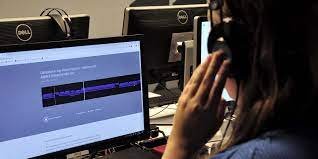MuseNet: A Revolutionary AI System for Music Composition

Music is an essential part of human life. It has been used as a form of expression, entertainment, and communication for centuries. The rise of technology has revolutionized music production and composition, leading to the development of various software tools to aid musicians and composers. One such tool that has gained significant attention in recent years is MuseNet, an AI-powered music composition system.
What is MuseNet?
MuseNet is an AI-powered music composition system developed by OpenAI, a research institute specializing in artificial intelligence. It is a generative model that uses machine learning algorithms to compose music in different styles and genres. MuseNet can produce music in various formats, including MIDI files, audio recordings, and sheet music. It has been trained on a massive dataset of music from different genres, eras, and cultures, allowing it to compose original music in various styles.
How Does MuseNet Work?
MuseNet uses a deep neural network architecture that allows it to learn the patterns and structures in music. It has been trained on a vast dataset of music that includes over 10,000 hours of various styles and genres. The system works by generating music through a process called sampling. It starts by inputting a few notes or chords and then generates new music based on the input. The output is refined through multiple iterations until the system produces a complete piece of music.
Benefits of MuseNet
MuseNet has several benefits for musicians, composers, and music enthusiasts. Firstly, it can generate original compositions quickly, saving time for composers who may spend hours creating a single piece of music. It can also create music in various styles and genres, making it a versatile tool for musicians. Additionally, MuseNet can aid in the discovery of new musical ideas, providing fresh inspiration for composers.
Potential Applications of MuseNet
MuseNet has numerous potential applications in the music industry. It can be used to create background music for films, TV shows, and video games. It can also be used to compose jingles, ad music, and other commercial music. MuseNet can also assist in the creation of music for dance performances, theatrical productions, and other live events.
Conclusion
In conclusion, MuseNet is a revolutionary AI-powered music composition system that has the potential to transform the music industry. Its ability to generate original compositions in various styles and genres makes it a versatile tool for musicians and composers. With further advancements in AI and machine learning, MuseNet is poised to become an essential tool for music production and composition in the future.




